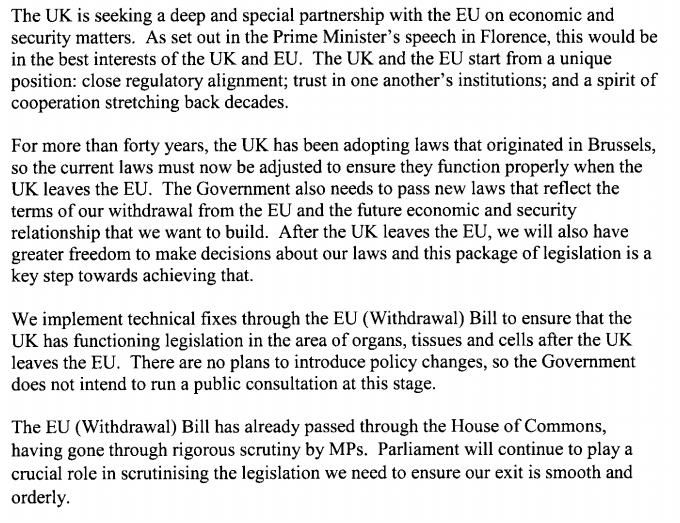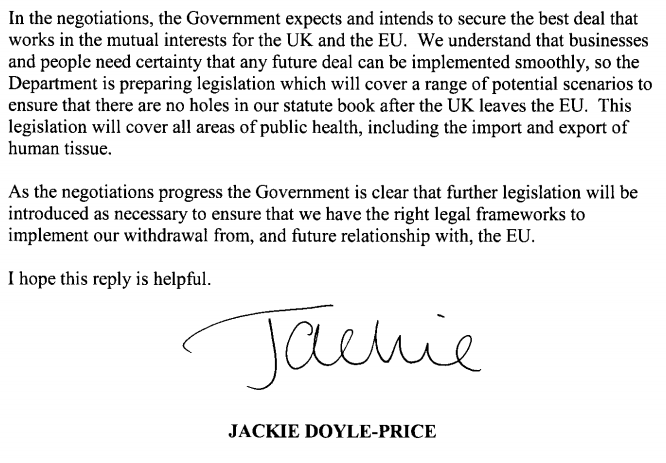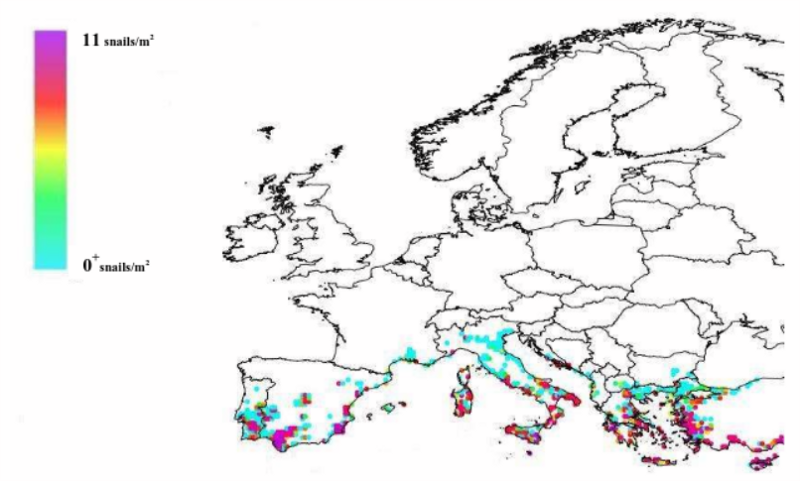On 29th March 2019 a large chunk of the law that we have to follow in the UK will vanish. The treaties of the EU (TEU and TFEU) will no longer apply to the UK and the European Communities Act 1972 will be repealed (or will be rendered obsolete) and a heap of EU stuff will not apply in the UK. We will stop being a member state of the union.
Firstly lets spend a moment to understand what exactly all that stuff is. The EU makes law in two main ways, Directives and Regulations. Directives are orders to the 28 member states to achieve a goal but they don’t specify how to do it. Take a look for example at 2006/40/EC relating to emissions from air-conditioning systems in motor vehicles. The key bit is article 10 “Member States shall adopt and publish by 4 January 2008 the laws, regulations and administrative provisions necessary to comply with this Directive.” so for these things, the member states pass domestic laws. In our case, we passed (amongst other things probably) “The Motor Vehicles (Refilling of Air Conditioning Systems by Service Providers) Regulations 2009” which is a statutory instrument (an SI is a little law that the government doesn’t want to bother parliament with too much, so they leave it on the desk in the Commons for a few weeks in case anyone wants to read it, then it becomes law automatically). So, in the case of this directive we already have the UK law we need, and that law will still be UK law after Brexit.
Next up is regulations. These are EU laws that don’t require domestic implementation. These are the things that freak out the quitters, EU laws made in Brussels (and passed by the democratically elected MEPs) that have direct applicability in the UK without the UK parliament being involved in the process. These don’t do anything particularly scary, they can’t create criminal offences, but they can have an impact on various areas of safety, trade, product design and life in general. Regulations end with the phrase “This Regulation shall be binding in its entirety and directly applicable in all Member States.”
Lets have a look at a recent regulation. 2017/1369 (go and skim read it now, I will wait) is a regulation on labelling products with energy efficiency ratings. Thanks to earlier efforts in this area products are becoming much more efficient, so now many things are A rated on that familiar scale from A to G (or A+++ to D sometimes) that you get stuck on appliances like washing machines etc. In response to this progress they now want to raise the bar and re-scale the thresholds so that consumers can differentiate between the new more efficient products. There is going to be a bit of a redesign of the label and the criteria get tougher. Innocuous stuff really.
The Withdrawal bill (explanatory notes and Commons Library research paper) will take all direct regulations and copy the text of them into UK law. It will then give the government sweeping powers to fix those regulations to make them work in a UK context. This means that 2017/1369 is going to be scooped up and posted to legislation.gov.uk in verbatim form on Brexit day. Then they will “fix” it. What does that mean exactly? Well, the end result we want is pretty clear. We want it to be UK law that Currys will flog washing machines with the right energy labels on them, the same as you get if you walk into Darty. Maybe at some point we will have our own scheme like the Australian labels which would no doubt be a bold thrusting expression of our independence and sovereignty. Does scooping up the regulation and calling it UK law do that? Not really! It empowers the commission to set up product databases, it sets up consultation groups, working plans, gives authority for supplementary delegated acts and on the way it does set some obligations for suppliers and dealers to distribute the appropriate ratings with the products. This would make horrific UK law if it became post-Brexit law in the current state. It isn’t something that can be fixed with a quick find and replace, it needs a root and branch re-write. There is nothing special about the example I picked, it is just the latest of 12000 or so they intend to transpose in two years — at a proposed rate of something like 120 a week for two years solid! You will note that there is no worked example of transposing any regulation through the process defined in the bill, and there is no evidence to suggest that a rate of 120/week is achievable and sustainable. There is no obstacle to fixing up a small random sample of regulations and a back of the envelope calculation would reveal whether the job fits in the time available.
Our law lasts a long time, this post-Brexit law making rush is going to have to set the UK up for centuries to come. The current Withdrawal act plan is going to set in stone a lot of very very badly drafted law.
Don’t bring me problems, bring me solutions!
So, I can moan about this incompetent approach, but that doesn’t help things unless I suggest a different way. I do have one that I think is legally fairly sound (any lawyers want to correct me on that?) and workable. We should pass a law that makes it an offence to take advantage of the lack of regulation post-Brexit. This would create an obligation on everyone to do roughly what would have been done if we were a member state where at all possible.
That would mean that vendors of washing machines would have an obligation to put the appropriate stickers on because that is what they would do if there was a valid regulation in force. It would be an offence to stick A rated stickers on a C rated appliance — not because we have any particular efficiency regulation, but because doing so would be taking advantage of the unregulated situation. This law would persist while the UK passes new red white and blue regulations written from scratch to do whatever parliament wants them to do. I would call it the “Don’t Be a Dick While We Get Our Shit Together Act of 2019” which I think sums up the essence of it in a way that everyone should understand.
This approach does not require any Henry VIII super powers, it does not require an impossible parliamentary workload, it shifts some of the interpretation of what should be done to the courts on a case by case basis until there is settled UK law. It means that we have some semblance of functional law on day 1 rather than a complete mess that becomes live UK law with an intention to patch it up over the following two years before the government super powers expire.
So, how bad is this Henry VIII stuff anyway?
To wrap up my musings, lets just talk about what everyone else is talking about with regards to the Withdrawal Bill — those Henry VIII powers that allow the government to do pretty much anything. I think a sense of perspective is required here, what we have is Jim Hacker requesting lots of power for Sir Humphrey Appleby’s team to do a ridiculous amount of work to unbreak the thousands of EU regulations that they plan to make into post-Brexit acts of UK law. There is no particularly evil intent here, the Sir Humphreys will be writing all the statutory instruments to patch the laws. There will be some minor conniving going on, where they can get away with it, but Sir Humphrey isn’t going to introduce the death penalty (at least not for people who went to a respectable university). We can relax in the knowledge that the Henry VIII powers will just be wielded by unelected pen pushing bureaucrats. It is an interesting side effect of the “take back control” agenda I suppose, but worrying about the power grab seems like a bit of a distraction from the big issue that the job can’t be done, and will create centuries of bad law if it is attempted.







